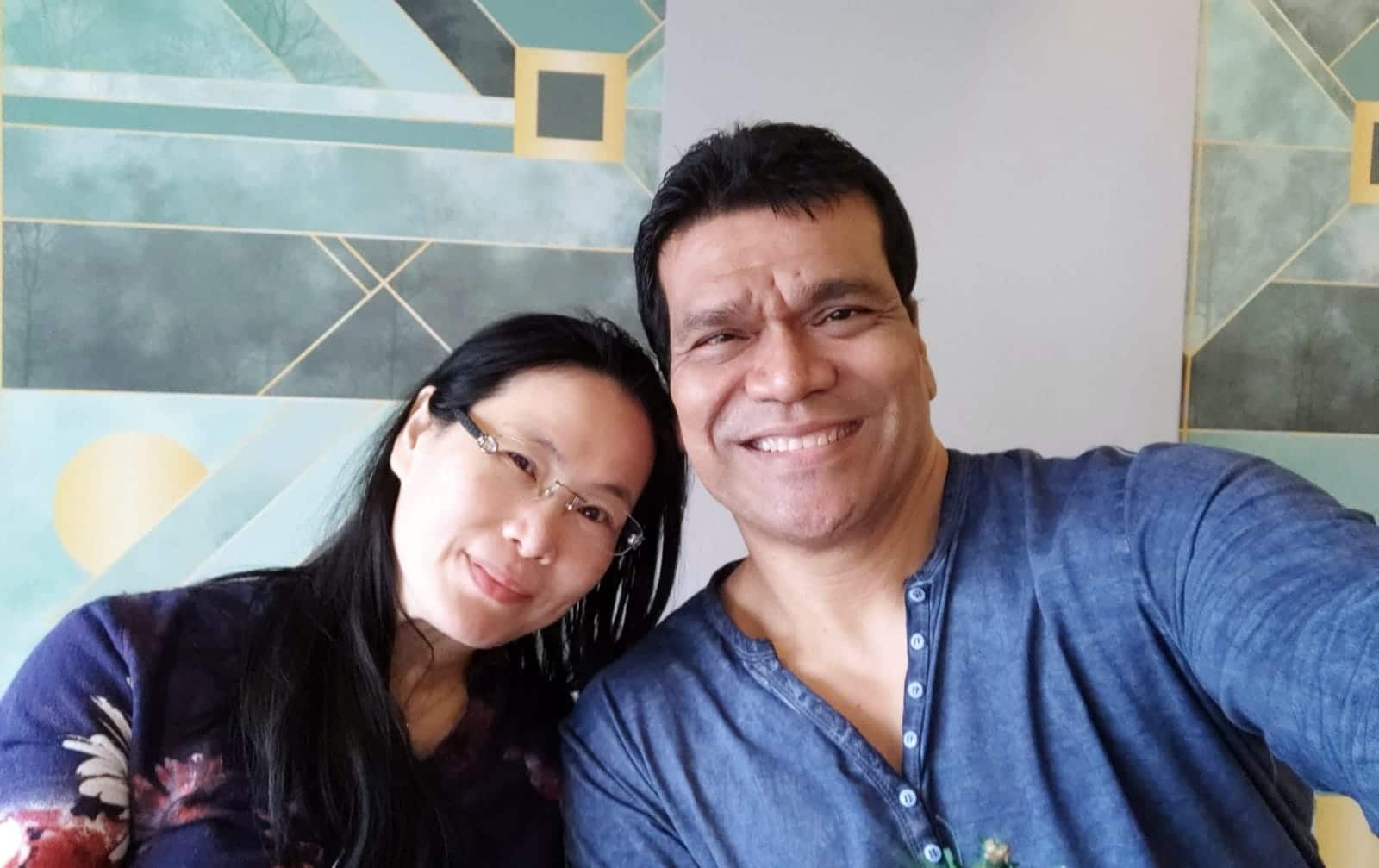Fearful of evangelism? Jesus is at the centre of the storm
Max Jeganathan // November 26, 2018, 7:14 pm

Photo by Torsten Dederichs on Unsplash.
One of the television shows I used to watch when I was still working as a political adviser in Australia was The West Wing.
The political drama is based in the west wing of the White House and it tells the story of a fictional President of the United States called Jed Bartlet.
The writer of The West Wing, Aaron Sorkin, invented this character using about 15 other US presidents and mixed various aspects of who they are.
One thing he took from John F Kennedy was a plaque on Bartlet’s desk inscribed with a prayer on it, which resonated with me as a Christian.
It said: “Oh Lord, your sea is so big, and my boat is so small.”
“Oh Lord, your sea is so big, and my boat is so small.”
I think it’s a wonderful declaration of humility from someone who’s considered to be one of the most powerful people in the world.
It also applies to all of us, I think.
Just like the disciples watching Jesus calm the storm in their boats (Mark 4:35-41), when we wake up sometimes it’s very easy to feel like the sea out there is so big and our boats are so small, whether it’s in our businesses or our churches.
Even in a city like Singapore, where broadly speaking we are some of the most academically qualified, productive, and high-functioning people in the world, it can still feel that overwhelming.
There are a few interesting things I think we can take from the story of Jesus in the boat with his disciples and it points to every aspect of our life as disciples, in particular one aspect of discipleship oft forgotten – evangelism.
God-focused humility
Why are we so afraid of this word? It refers to that aspect of discipleship that creates anxiety.
We fear rejection, intimidation, social exclusion, the religious harmony act, being thrown in jail, regulations.
We fear all of these things and so evangelism is something that we love to leave to evangelists.
Our experience, our expertise, our degrees, all mean nothing when the storm comes, because our “boats” are so small.
We understand how difficult evangelism is in the 21st Century, but there are a few lessons we can take from this account of Jesus in the boat.
The first is that some of these disciples who are terrified in the storm are fishermen. They are at their everyday workplace, so stormy waters should be something that they’re used to, especially the Sea of Galilee which used to be their usual workplace.
What does this tell us? That it’s okay to be intimidated, to be scared, to have these anxieties.
Our experience, our expertise, our degrees, all mean nothing when the storm comes, because our boats are so small.
So we start from a posture of a very healthy, God-focused humility.
Jesus at the centre
The second thing is that Jesus is asleep in the stern of the boat. I think God is telling us something symbolically important here because the stern is the center of stability for any watercraft.
Jesus is asleep in the center of stability of the boat, not the side, nor the upper deck.
For us to have the assurance of His power to calm the storm we need to put Him in the absolute center of everything, not just on Sunday mornings, our marketplace ministries, or our discipleship groups.
Another interesting detail that Mark shares with us is that Jesus is asleep on a cushion.
It’s a very clear message to us that, however big the storm, Jesus Christ Himself rests in absolute comfort and ease in relation to it.
There’s nothing that we’re going through that He hasn’t seen before. There’s nothing that we’re going through that He can’t have. These are some things that we can take as evangelists in our marketplace.
Fundamental to discipleship
A lot of people think that discipleship is exclusively about holiness, growing deeper in Christ, fellowship, serving in our church, living out the values of the kingdom. It is, but it’s also about evangelism.
In fact it’s the final thing that Jesus said to us before His ascension: To make disciples of all nations (Matthew 28:19).
You don’t get a choice if you are walking with Jesus. You are a full-time evangelist. It’s just a matter of whether you are a committed one or an uncommitted one.
Evangelism is the final thing that Jesus said to us before His ascension: To make disciples of all nations.
In the 21st Century, we arguably need to be smarter than any generation that has gone before us in spreading the Gospel because the storm is more politically and regulatory sensitive than it has ever been.
Here, we can turn to the example of Paul in Acts 17.
This is when Paul goes to Athens, where so many people don’t know the Lord. What he does first is to enter the synagogue and reason from the Jewish scriptures.
Then, he goes into the marketplace and reasons with the people there. There he goes to the university – the “Areopagus” (Acts 17:19) – and gives a TED talk, basically. There, he reasons from the philosophers.
What he’s doing is he’s not just setting up magnificent churches somewhere in the city.
He’s gone to meet the people where they are.
The second thing he’s doing is he is reasoning the Gospel from the concepts that they already understand.
Paul reasons from concepts like integrity, leadership, ethics, supply and demand, profitability, regression, financial models. Because the Gospel of Christ is all-encompassing.
The beauty of it is that you can reason from absolutely any aspect. And the power of the Holy Spirit will carry the argument through.
As 1 Peter 3:15 says, we should always be prepared to give a reason for the hope that we have, and to do so with gentleness and respect.
Authentic relationships
I think there is a very powerful reason why in the Old Testament we are commanded to love the Lord our God with all our heart, soul and strength, but in the New Testament Jesus also adds “the mind”.
Why? Because God knew the nature of the storms that we would be facing, and He knew that the Holy Spirit is going to come and work with us.
One of our responsibilities is to bring the answers and to meet the people where they are.
This seems intimidating, but there are two pillars to marketplace evangelism that I have already seen unleashed through the power of the Holy Spirit and God’s grace here.
The first is relational evangelism, building authentic relationships of trust over time.
Relational evangelism means building authentic relationships of trust over time.
I say authentic relationships because I don’t think relationships are exclusively for the purpose of evangelism, but fulfilling a call to love other people (Luke 10:27).
We will continue to bring the great evangelist into town, to celebrate at the National Stadium, to hold massive initiatives like Alpha Everywhere and the Celebration of Hope. But these are bolstered by relational evangelism, which I believe is where it all begins.
The second thing is that, though some of you think you aren’t able to answer some of the questions non-Christians have, you sought those who can.
That’s what RZIM is here for. We would love to come and speak with anyone in your marketplace on topics like truth, fulfilment, wealth, ethics and leadership.
These topics are not necessarily explicitly evangelistic but these are the concepts that people are talking about, and we are happy to address these concerns.
This article is based on a marketplace talk that was delivered on November 15, 2018, at the Intercontinental Hotel, Singapore.
We are an independent, non-profit organisation that relies on the generosity of our readers, such as yourself, to continue serving the kingdom. Every dollar donated goes directly back into our editorial coverage.
Would you consider partnering with us in our kingdom work by supporting us financially, either as a one-off donation, or a recurring pledge?
Support Salt&Light



